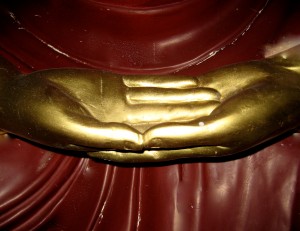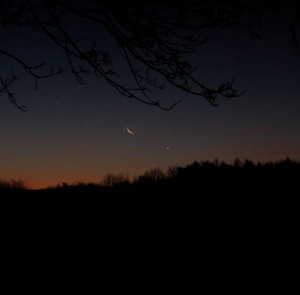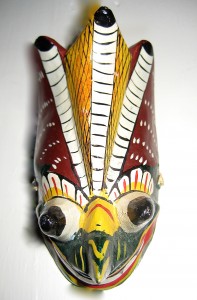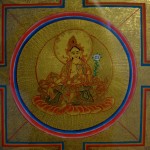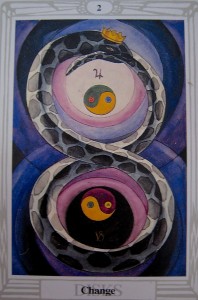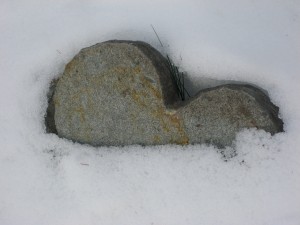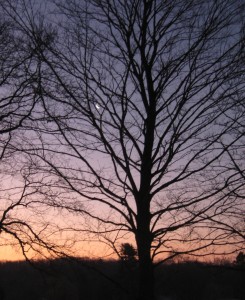
Ordinary reality is our world of solid objects constructed by the building blocks of time and space as organized by the mind through its faculty of reason. Ordinary reality is a discreet world that increasingly sees itself as the only world, the one true reality. This is an old world view not dissimilar to the view once held that the earth was the center of the universe, that even the sun had to revolve around it. We now know that this egocentric, earth-centric view of the universe is false. The truth is that Earth is actually a minor player in a vast, endless universe.
Many people today also know that ordinary reality is but a subset of a far greater reality, that of infinity and the many worlds that coexist within it. Just as in Galileo’s time, today we encounter the fierce guardians who protect and uphold the notion of the one and only true world of ordinary reality. These guardians fear the collapse of the world as we know it—if the doors were to open to the experience of life beyond ordinary reality.
These same types of guardians operate within the psyches of all of us. There are veils that protect our version of who we are, what’s happened to us, and what really exists in this world. In trauma we are jolted beyond the confines of ordinary reality into a state of heightened awareness. In the world of heightened awareness, time and space as we experience it in ordinary reality are suspended. Many people report that time slows considerably during a trauma, that very slow motion and a sense of clarity to each unfolding detail are experienced.
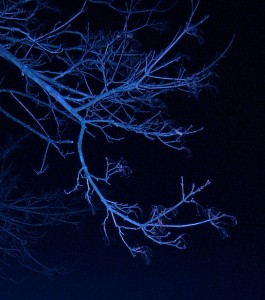
The laws of space and reason are suspended as well in the heightened awareness of trauma. People report being partially out of or completely separate from their physical bodies, witnessing the entire traumatic event from a great distance, often with a remarkable sense of detachment.
Once a trauma has completed, consciousness immediately shifts back into ordinary reality. Similar to emerging from a dream world state back into waking reality, the experience of trauma disappears like a quickly evaporating dream. The guardians of the psyche of ordinary reality return and go to work to fit the residue of the experience that won’t disappear into some reasonable story that fits the guidelines of ordinary reality, once again ensuring the sanctity and supremacy of ordinary reality—known as sanity.
Jan relates that in her experiences as a sexually abused child, as soon as she left her abuser’s world—walked back out through the veils and into ordinary reality—she left the traumatic event behind, but there were still physical and emotional residues to deal with. As a six year old, pain in the pelvic region or crotch was given a reasonable explanation, coming from too much bike riding, or later as a teenager from horseback riding. Sometimes, even before crossing back into ordinary reality, the pain had already settled in some other area of the body, such as in the arm or neck, also related to the trauma but much easier to bear, more acceptable than a pain in a most private part of the body that no one ever spoke about or was supposed to touch. Emotional pain turned to acting out and anger, as she blamed others for the turmoil inside that she could not fully encapsulate.
Ordinary reality does not permit a world where time and space are suspended and reason falters. So the guardians of ordinary reality employ forgetting, doubting, and revisionism to secure the borders from the irrational intruders of experiences of trauma, that is, heightened awareness and non-ordinary reality.
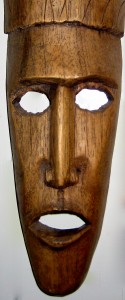
PTSD is the result of the collision between that world of ordinary reality and non-ordinary reality. In PTSD the psyche is forced into a state of hypervigilance as it attempts to keep at bay the intrusions of the experiences of non-ordinary reality into its perfectly reasonable state of ordinary reality. Society-at-large fears and denies PTSD because of the threat it poses to the supremacy of ordinary reality over all reality. Certain experiences just don’t fit into the perfectly reasonable world that the guardians uphold: “How could someone forget something like that?” “Repression doesn’t exist!” “It’s impossible to have sex with an infant!”
The current incidences of mass trauma played out on our world stage are rapidly pulling down the veils that the guardians of reason uphold, revealing the existence of powerful worlds beyond that of ordinary reality. In recapitulation we voluntarily undertake exploratory journeys into our personal experiences in non-ordianry reality: traumatic or otherwise. The challenge for all recapitulations of traumatic states of heightened awareness is allowing the truths experienced in those states of non-ordinary reality to be permitted into the knowing of ordinary reality, to accept the validity of other worlds within the self. It’s both a humbling and a terrifying process.
Doubt so often appears to undermine the knowing of the truths so overwhelmingly presented during recapitulation. Frequently the body replays, in excruciating sensory detail, the experience that occurred in the heightened awareness state of trauma. The nightmare of this trauma is relived in all its intensity to prove to the consciousness of ordinary reality that indeed it happened! Amazingly, doubt can disavow even such powerful experiences for a long time. Ultimately, however, as a supportive process of recapitulation unfolds, ordinary reality expands to include the truths stored in the timeless world of non-ordinary reality.
Eventually these two worlds merge into greater wholeness and we become beings less attached to a narrow view of the universe. Like Galileo, we become proponents of and explorers of a new universe, beings far better equipped to navigate and discover the deeper dimensions of infinity, the infinity of ourselves.
In many worlds,
Chuck

